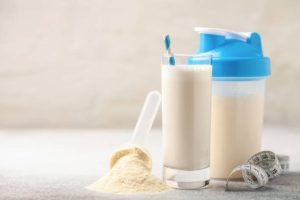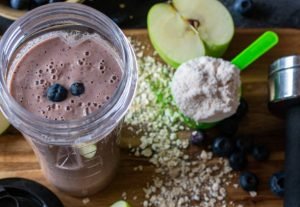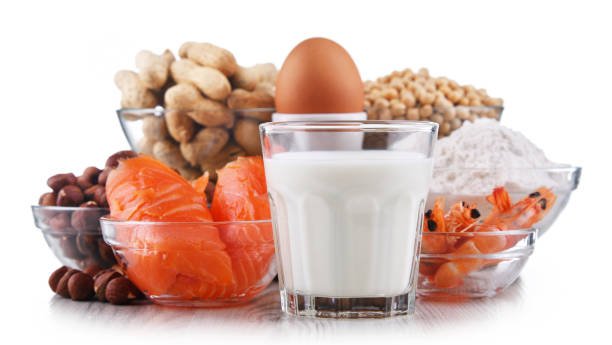The debate over whether to eat before a workout remains ongoing.Some individuals swear by fasted exercising, such as fasted cardio, claiming it provides them with increased energy and faster results.Conversely, others credit their pre-workout meals for supplying them with the necessary energy to endure their workouts. This leaves many questioning which approach is truly more effective.
Eating before a morning workout is not necessary for everyone. It ultimately depends on personal preference and how your body responds to exercise on an empty stomach.
Some people find that they have enough energy to complete their workout without eating beforehand, while others may feel lightheaded or fatigued without a pre-workout meal.
If you choose to eat before a morning workout, it’s important to consume a light meal or snack that provides a balance of carbohydrates and protein. This can help fuel your workout and provide the necessary nutrients for muscle recovery.
However, if you prefer to exercise on an empty stomach, it’s important to listen to your body and ensure you’re adequately hydrated. It may also be beneficial to have a small snack or meal ready for after your workout to replenish your energy stores.

While it is true that eating fewer calories before a workout may not necessarily lead to better results, it is important to note that the impact on weight loss can vary from person to person. Some individuals may find that they perform better and have more energy during their workout if they have a small meal or snack beforehand, while others may prefer to exercise on an empty stomach.
It is also worth mentioning that the timing and composition of the meal can play a role in its impact on weight loss. Consuming a balanced meal or snack that includes carbohydrates, protein, and healthy fats can provide the necessary fuel for the workout and support muscle recovery without significantly impacting weight loss efforts.
Ultimately, the decision to eat before a workout should be based on personal preference, individual goals, and how your body responds to exercise. It is important to listen to your body and find what works best for you. Consulting with a healthcare professional or registered dietitian can also provide personalized guidance and recommendations.
If you have a sensitive stomach, it may be necessary to experiment with different pre-workout snacks to find what works best for you. Simple options like an apple or banana, yogurt, or a nutrition bar can provide the necessary fuel for your morning workout.

These are all great options for pre-workout nutrition:
-
Oatmeal: Oatmeal is a complex carbohydrate that provides a steady release of energy during your workout. It also contains fiber, which aids in digestion and helps you feel full.
-
Whole grain toast: Whole grain toast is another source of complex carbohydrates that can provide sustained energy. It also contains fiber and nutrients like B vitamins.
-
Fruit: Fruits like bananas, berries, and oranges are rich in natural sugars and provide a quick source of energy. They also contain vitamins, minerals, and antioxidants that support overall health.
-
Beef jerky: Beef jerky is a convenient and portable source of protein. Protein is essential for muscle repair and growth, and consuming it before a workout can help prevent muscle breakdown.
-
Eggs: Eggs are a complete protein source, meaning they contain all the essential amino acids your body needs. They also provide important nutrients like vitamin D and choline.
-
Milk: Milk is a good source of both carbohydrates and protein. It also contains electrolytes like potassium and calcium, which are important for muscle function and hydration.

Credit: iStock by GettyImage
Here are some tips to help you optimize your morning pre-workout nutrition:
-
Plan ahead: Prepare your pre-workout meal or snack the night before to save time and ensure you have something ready to eat in the morning.
-
Prioritize convenience: Choose foods that are easy to grab and eat on the go, such as a pre-made smoothie, overnight oats, or a protein bar.
-
Limit fiber intake: While fiber is important for overall health, consuming too much before a workout can lead to digestive discomfort. Opt for lower-fiber options like white bread or rice instead of whole grains.
-
Hydrate strategically: Drink enough water to stay hydrated, but avoid consuming excessive fluids right before your workout to prevent that uncomfortable feeling of a full stomach. Sip on water throughout your workout instead.
-
Experiment with timing: Pay attention to how your body responds to different timing of your pre-workout meal. Some people prefer to eat 1-2 hours before their workout, while others may need more or less time to digest.
-
Listen to your body: Everyone’s nutritional needs and preferences are unique. Pay attention to how different foods make you feel and perform during your workout. Adjust your pre-workout nutrition based on what works best for you.
Remember, it’s important to find a balance between fueling your body for optimal performance and avoiding discomfort during your workout. Experiment with different strategies and consult with a registered dietitian for personalized guidance.



